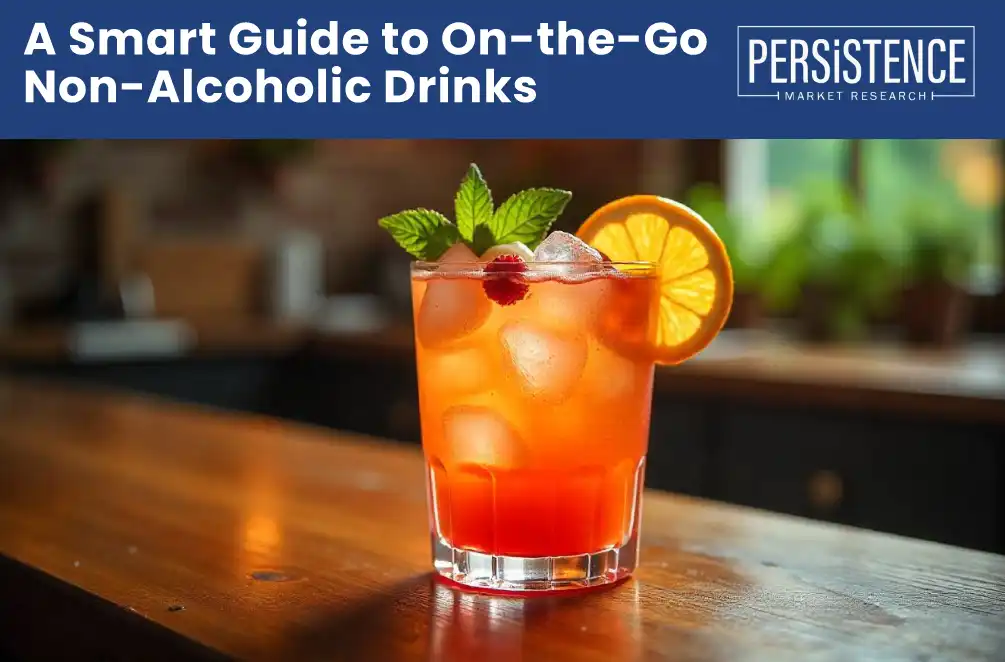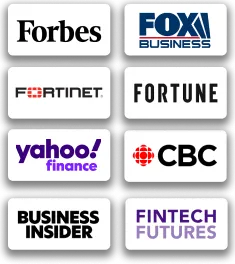- Blog
- On The Go Non Alcoholic Drinks
A Smart Guide to On-the-Go Non-Alcoholic Drinks
Published On : 13 Jun 2025
Unmasking Alcohol: The Hidden Health Hazards
Alcohol has been hogging the spotlight at social gatherings for centuries. But now, with kombucha and mocktails crashing the party, it’s finally taking a backseat. Yes, alcohol brings the buzz but it also brings brain fog, liver tantrums, heartbreak (literally), and a very cranky pancreas. It weakens the immune system, making one susceptible to infections.
To top it off, alcohol is also a known carcinogen, linked to cancers such as breast, liver, and colorectal. The 2023 World Health Organization (WHO) report warns that even low alcohol consumption may carry health risks. Research shows that going alcohol-free improves sleep, memory, concentration and even immune function.

What’s Fueling the Non-Alcoholic Beverage Boom?
Non-alcoholic drinks are beverages that do not have any alcohol in them, as the name suggests. These drinks can be non-alcoholic beers and wines or juices, smoothies, coffees, teas, or the mocktails. The growing focus on health and wellness is one of the primary reasons non-alcoholic beverages are becoming popular.
According to a report by The Guardian, many people are reducing their alcohol intake, or even stopping consumption altogether, in favor of better mental and physical health.
Some avoid alcohol not for health reasons, but because they don’t like its taste, are designated drivers, or simply don’t want to deal with the next-day energy crash. Some skip alcohol for religious or cultural reasons or pregnancy-related issues.
Are Gen Zs Leading the Sober-Conscious Movement?
A rising sober curiosity is witnessed among Gen Zs and millennials recently, ditching alcohol as a social lubricant. This shift is backed by surprising drinking statistics that highlight the scale of the transformation.
In the U.K., a 2019 study indicated that 26% of 16–25-year-olds abstained from alcohol, making them the most likely age group to be teetotalers. This trend continued into 2022, with 25% of 16–24-year-olds and 19% of adults aged 16 and over abstaining from alcohol. Gen Z didn’t just ghost skinny jeans they ghosted alcohol too.
In the U.S., a Gallup poll from 2021–2023, the percentage of college-age Americans who are teetotalers rose from 20% to 28% over the past decade. Gen Zs prioritize mental health, and reducing their alcohol intake is one of the ways they stay sharp.
How Are Celebrities and Influencers Shaping the Sober-Conscious Movement?
Public figures including Bella Hadid and Katy Perry have not only embraced sobriety, but also launched their own non-alcoholic beverage brand empires. Hadid co-founded Kin Euphorics, a line of adaptogen-infused, non-alcoholic drinks for mental clarity and calm, while Perry introduced De Soi, a non-alcoholic apéritif.
Kin Euphorics features blends such as Kin Bloom and Kin Lightwave, packed with functional ingredients including GABA, 5-HTP, and L-theanine. Meanwhile, Vybes CBD drinks appeal to women over 40 seeking relaxation without the wine headache.
Coolberg, Sober, Svami, Jade Forest, Kati Patang, 3 Sisters, Local Ferment Co, Paperboat, Lahori Zeera, Borecha, and Gunsberg are some popular Indian brands.
Influencers such as Shea Gomez have created communities such as No Booze Babes, making alcohol-free lifestyles cool. These ventures reflect a deeper commitment to promoting wellness and mindful consumption.
Sipping Smarter: Which Are the Trendy Alcohol-Free Alternatives in 2025?
Non-alcoholic beverages have a wide range of drinks under their umbrella. Here are some top picks to quench thirst without dulling the senses:
- Kombucha: This fermented and tangy tea is rich in probiotics and easy on the stomach. Global go-to brands include GT's Living Foods, Health-Ade, Brew Dr. Kombucha, Humm Kombucha, and KeVita.
- Coffee Culture: Brands such as Starbucks, Nespresso, and Rise Brewing Co. have capitalized on the cold brew bandwagon. Cold brew and nitro coffee deliver caffeine with a cool factor smooth, bold, and totally Instagram-worthy. This wave of ready-to-drink (RTD) coffees is outpacing hot brews and fueling Gen Z’s obsession with photogenic sips.
- Sparkling Water: Sparkling water provides a crisp, refreshing option. It can be plain or infused with natural flavors including cucumber, mint, or citrus, and is bubbly, guilt-free, and endlessly refreshing.
- Iced Tea: Kegged iced tea offers a variety of blends, from classic black tea to herbal infusions such as hibiscus or chamomile. The tap system keeps it fresh and flavorful, whether served sweetened or unsweetened. It’s easy to customize.
- Alcohol-free Beers, Wines, and Spirits: Zero-proof is the new buzzword. From non-alcoholic beers such as Heineken 0.0 and Budweiser Zero to mock-gins and wine alternatives including Sobriety Sips and Catwalk Botanics, these beverages recreate the feel and flavor minus the brain fog.
- Mocktails: If mocktails had a slogan, it would be “All sass, no hangover”. Classic options such as the Shirley Temple, Virgin Mojito, and Virgin Piña Colada are getting a glow-up in the ready-to-drink market. They're perfect for parties, brunches, and Tuesdays.
Are Non-alcoholic Beverages Totally Safe?
Some non-alcoholic drinks are sugar bombs in disguise. Basically, a candy bar pretending to be wellness in a bottle. Check the label before accidentally drinking these calorie-laden herbal fizz. They can contribute to weight gain and insulin resistance. Some beverages contain harmful artificial sweeteners such as aspartame, erythritol, or sucralose, which can impact metabolic health. They also include stimulants such as caffeine and guarana. It is important to read labels and consult with healthcare providers before consuming any of these beverages.
Conclusion
The once-niche non-alcoholic segment has evolved into a thriving industry, fueled by growing health-consciousness and the availability of an innovative range of products. Today, it’s perfectly acceptable to ask for a mocktail or a non-alcoholic beer at a bar or restaurant without any embarrassment. The sober-conscious movement is not just a fad but a reflection of a wider cultural shift toward moderation, wellness, and inclusivity in modern social life. Non-alcoholic beverages and mocktails are here to stay. Whether one is dancing, toasting, or just vibing, skip the booze and reach for a cold brew or sparkly mocktail instead.
Industry Report

Request Report Sample
Your privacy is important to us; your data is secure
Contact Us
Latest Reports
-
Baby Powder Market by Ingredient Type (Talc-based, Talc-free), Packaging Type (Plastic Bottles, Sustainable/Eco-tins, Sachet/Pouches, Others), Distribution Channel (Offline, Online), and Regional Analysis 2026 – 2033
-
Duck boots market by Product Type (Insulated Duck Boots, Waterproof Duck Boots, Fashion Duck Boots, Thermal Lined Duck Boots), Material (Rubber, Leather, Textile, Combination Materials), End-user (Men, Women, Kids), and Regional Analysis for 2026 – 2033
-
Extruded Polylactic Acid (PLA) Fiber Market by Fiber Type (Monofilament PLA Fiber, Multifilament PLA Fiber, Staple PLA Fiber, Tow PLA Fiber, Specialty PLA Fiber), Grade (Standard Grade, High-Performance Grade, Bio-modified/Enhanced Grade), End-user, and Regional Analysis, 2026 - 2033
-
Tea-Based Skin Care Products Market by Tea Type (Green Tea, Black Tea, Others), Product Form Type (Creams & Lotions, Serums, Cleansers & Masks), Application (Facial Care, Body Care, Others), and Regional Analysis 2026 - 2033
-
North America eVTOL Aircraft Lift Technology (Vectored Thrust, Multirotor, Lift Plus Cruise), Mode of Operation (Piloted, Autonomous, and Semi-Autonomous), Range (0-200 Km, and 200-500 Km), Maximum Take-off Weight (MTOW) (<250 Kg, 250-500 Kg, 500-1500 Kg, and >1500 Kg), Application (Commercial, Military, and Emergency Medical Service), Propulsion Type (Battery-Electric, Hybrid-Electric, and Hydrogen-Electric) Analysis for 2026 - 2033
